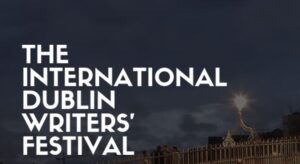Mar 27, 2024 | Editors' Blog
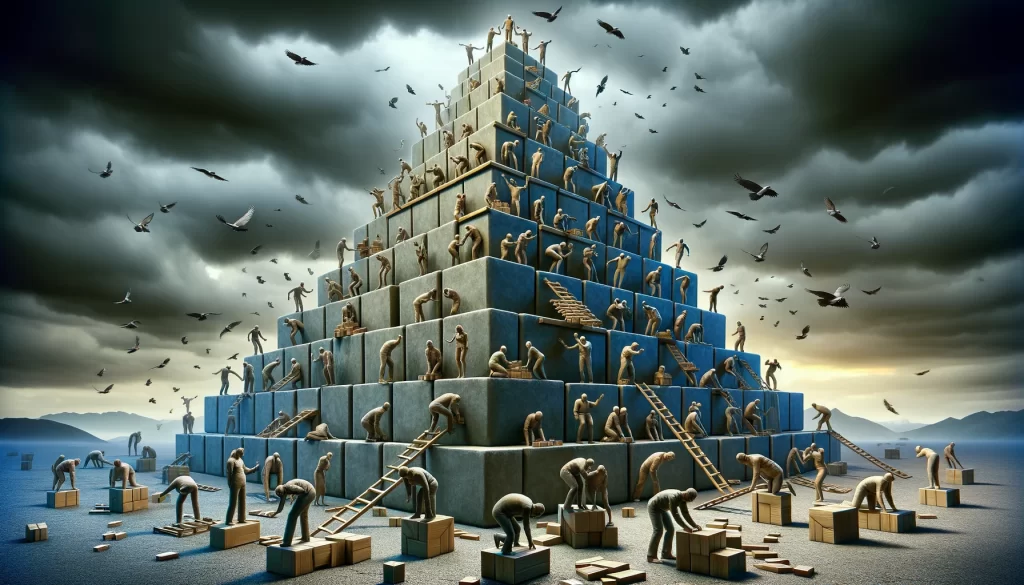
In the quest for financial freedom and success, many are drawn to the seductive allure of Multi-Level Marketing (MLM) opportunities. Promising significant earnings, personal development, and the chance to be part of a community, MLMs have woven themselves into the fabric of many economic dreams.
But beneath the glossy exterior lies a complex and often perilous reality. This post delves into the hidden dangers of MLM schemes, exploring real-life horror stories and the fine line separating legal MLM businesses from illegal pyramid schemes.
The Allure of MLMs
MLMs, sometimes known as network marketing, operate on a business model that rewards individuals for selling products and, more lucratively, for recruiting others into the business. The promise of passive income through a downline of recruits is the cornerstone of the MLM pitch.
However, the structure is such that it often benefits those at the top disproportionately, leaving many at the bottom struggling to make any significant income.
The Fine Line: MLMs and Pyramid Schemes
The distinction between a legitimate MLM and a pyramid scheme can be murky. MLMs are required to generate revenue through the actual sale of products or services to consumers, not just from the fees paid by new recruits. See the FTC guidelines on MLMs here.
Conversely, pyramid schemes primarily generate revenue from recruitment, often offering no real product or service of value. This distinction, while clear on paper, becomes blurred in practice, with many MLMs operating dangerously close to pyramid scheme territory.
Horror Stories: Dreams and Nightmares
The internet and social media platforms are rife with testimonies from individuals who have suffered significant financial and emotional distress due to their involvement in MLMs. Here are a few examples:
- A mom who chose the MLM over her children: Reddit is full of MLM horror stories. Here is one to turn your stomach.
- Here is a post on HuffPost describing the low success rate and many other tales of people being duped by MLMs.
- The Utah MLM industry. Many MLM companies have a presence in Utah because the state has a high percentage of stay-at-home moms and is home to many practicing Mormons who value community highly. Perhaps the Church of Latter Day Saints needs to look at itself in the mirror over this.
- Why? A journalist at Buzzfeed here explains how many people get tricked by MLMs.
Do people deserve what they get? Or should the law protect people from vultures who take advantage of the weak and the powerless?
The Psychological Trap
One of the most insidious aspects of MLMs is the psychological manipulation employed to keep participants engaged and spending. The use of cult-like tactics, including love bombing, isolation from non-supportive friends and family, and gaslighting, creates an environment where leaving feels like failure. Participants are often told that any lack of success is solely due to their own lack of effort, not the inherently flawed system.
The Cost Beyond Money
While the financial losses can be devastating, the emotional and social costs are often just as significant. Relationships are strained or broken under the pressure of constant recruitment and sales efforts. Personal well-being is compromised as the line between work and personal life blurs, with participants encouraged to see every social interaction as a potential sales opportunity.
Navigating the Minefield
For those considering an MLM opportunity, caution cannot be overstated. It’s crucial to research thoroughly, be skeptical of promises of easy money, and understand the high likelihood of financial loss. Seeking out unbiased information and testimonials from former participants can provide a clearer picture of the reality behind the MLM facade.
The allure of MLMs is undeniable, offering a dream of financial independence and belonging.
However, the reality for most is often a far cry from the promise, with the potential for significant financial and emotional harm. The line between a legitimate MLM and an illegal pyramid scheme is not always clear too, making caution essential.
By sharing the real-life horror stories of those who have suffered, I hope to shed light on the hidden dangers of MLM schemes and encourage individuals to tread carefully on their path to success.
Jon Fredrik Fikse is a Norwegian author whose first novel, The Law of Excess, is about the dirty underside of the MLM industry. It is based on the true story of “The five percent community”, which looked very tempting in the beginning but ended up with fooling tens of thousands of people. See the book here.
Mar 16, 2024 | Editors' Blog
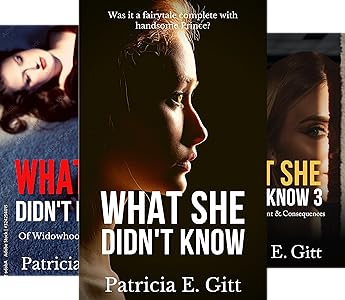 Sally Compton Scott is the blushing bride of husband Tyler. You first meet the blissfully happy couple early in their marriage completely besotted with one another. Sally is living her dream of a house in the suburbs with a man she’s totally devoted to, and pictures filling their home with children to love. Tyler’s costly divorce from his cold-hearted wife, prevents him from spending quality time with his son and daughter. Sally, hoping to ease the kids pain of rarely being allowed to see their father, quickly steps in and surrounds them with love.
Sally Compton Scott is the blushing bride of husband Tyler. You first meet the blissfully happy couple early in their marriage completely besotted with one another. Sally is living her dream of a house in the suburbs with a man she’s totally devoted to, and pictures filling their home with children to love. Tyler’s costly divorce from his cold-hearted wife, prevents him from spending quality time with his son and daughter. Sally, hoping to ease the kids pain of rarely being allowed to see their father, quickly steps in and surrounds them with love.
Sally’s world is suddenly upended by the early, accidental death, of her husband while vacationing in Antarctica. Upon returning home she is blindsided upon learning that Tyler hadn’t been totally honest with her. Instead, he had been living a lie.
In Book 2, Of Widowhood and Murder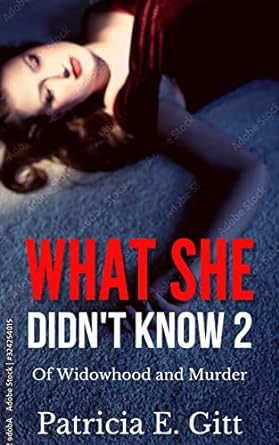 , Sally has begun to rebuild her life living in a Manhattan hi-rise and pursuing a career as an accountant to small business clients. At the end of each day, she pours a glass or two of wine and sinks back into the isolation of widowhood. She rarely calls her mother, or best friend, now married to Ryan, her brother-in-law. She is simply too exhausted.
, Sally has begun to rebuild her life living in a Manhattan hi-rise and pursuing a career as an accountant to small business clients. At the end of each day, she pours a glass or two of wine and sinks back into the isolation of widowhood. She rarely calls her mother, or best friend, now married to Ryan, her brother-in-law. She is simply too exhausted.
When she becomes enmeshed in the murder investigation of a young reporter, Sally is forced to set aside her grief, and with her natural curiosity begins to help the detective develop new leads in the case. As the investigation intensifies, Sally confronts her own life and this awakening has her questioning her self-imposed solitude and what she wants for the future.
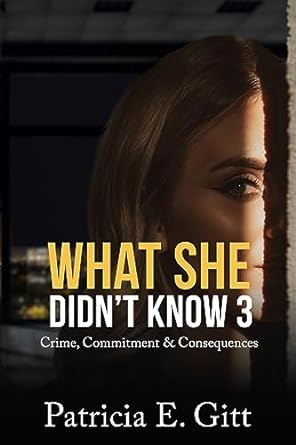 In Book 3, Crime, Commitment & Consequences, Sally emerges from her grief rejoining her warm and loving extended family… including her mother, her brother-in-law and his children, along with her best friend, Ryan’s new wife.
In Book 3, Crime, Commitment & Consequences, Sally emerges from her grief rejoining her warm and loving extended family… including her mother, her brother-in-law and his children, along with her best friend, Ryan’s new wife.
All the while, as Sally is dealing with her own problems, the criminals who murdered the young reporter are awaiting trial. When Sally’s friend and neighbor, the aunt of the murdered reporter asks for her help, Sally offers to assist her in trying to find out what her niece had been working on, that made her the target of murder.
The trial over, life returning to normal, and Sally, setting aside the ghosts of her past, reaches out and fully embraces her future… including the blossoming of a new romantic relationship.
VISIT PAT’S WEBSITE
FIND PAT’S BOOK ON AMAZON
Mar 8, 2024 | Editors' Blog, Interviews
Today, we’re talking with Jill Haymaker about her new book, The Boy in the Pink Convertible.
 Tell us something unexpected about yourself!
Tell us something unexpected about yourself!
I was an attorney for 25 years before giving it up to write full-time.
Why do you write?
I love romance and happy endings.
Where did you get the inspiration for your current book?
My current book, The Boy in the Pink Convertible, was fun because I started with a cute photo of my two grandkids and I wrote a story to go with it.
What do you enjoy the most about your genre?
I love the romance themes of love and second chances and always a happy ending.
How would you describe your writing process?
Scattered. I’m definitely a pantser but I always seem to pull in together into a good story.
What do you think authors have to gain from participating in social media?
It’s the best way to get your name out there and sell books.
What advice would you have for other writers?
Keep writing.
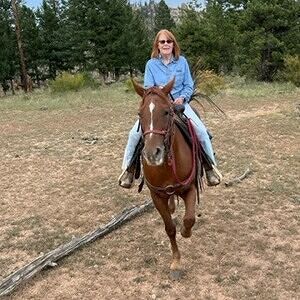 How do you select your books’ titles and covers?
How do you select your books’ titles and covers?
The titles I come up with before I start writing, but the covers usually I start about halfway through the book when I have a good grasp on the story.
What’s your next step?
Just keep writing.
How do you react to seeing a new review for your book?
I love reviews, although I don’t read them all.
VISIT JILL’S WEBSITE
FIND JILL’S BOOK ON AMAZON
Mar 8, 2024 | Editors' Blog, Interviews
Today, we’re talking with S.M. Albalooshi, about their new book, The Cyclamenton Teacup Poisoner.
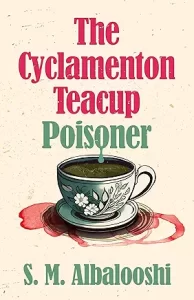
Tell us something unexpected about yourself!
I’m a neurodivergent Slytherin, a big Poirot enthusiast and loooove coffee so much. I’m an Arab writer living on a tiny island. Literally don’t understand people that manage on one cup a day. Also, I love and hate books so much and I can talk about them forever and ever. Unapologetically a Percy Weasley stan and will die for him.
Why do you write?
I originally started writing fanfiction. It’s kind of an escape. Sometimes, you just want to find your people and you have so much to say and you want people to hear you out. I love those soul-crushing books that make an impact on you and change the way that you see things. Or clever books that make you wanna go mental and keep you up at night. I don’t know how, but books are special and they make you feel special. It’s a journey and an experience. Sometimes it’s tasting your favourite ice cream and some books are so painfully awful they’re like labour. But seeing someone that you want written happen just feels so good. Seeing words put into sentences that make you feel things is kind of magical. That’s kind of why I wanted to write.
Where did you get the inspiration for your current book?
I kind of had the idea of the ending in my mind for a long time and worked my way backwards. The characters, when I developed the personalities, kind of wrote my book for me so I didn’t even know where it was going. I love that about writing. You don’t even know where it goes sometimes, and I think that’s beautiful. Wish I can say the same thing about my art though…
What do you enjoy the most about your genre?
I didn’t even know I had a genre until I wrote this book. I’ve never read a dark fantasy book and I’m not a horror reader. But I love the tropes that comes with fantasy and horror. I love the images of vampires and werewolves you get in your mind. I love the tropes of being in a haunted house or being left alone and travelling down a dark forest. I love writing dark and twisty stories, or even thinking about a regular story in a twisted sort of way. I like the feeling of giddiness that brings you. I don’t know what that feeling is, but it’s great.
How would you describe your writing process?
Chaotic 2am energy with some poetic ramblings.
What do you think authors have to gain from participating in social media?
Probably a lot, but I’m too much of a recluse. I’ve tried so much and gotten nowhere at all. I wished sometimes I could be a Tiktok legend, but that’s not me. I’m more of an I’m bad at talking to people but want people to know my thoughts? kind of person.
What advice would you have for other writers?
Write the stuff that you like, and don’t be ashamed about it. Write something that makes you kind of happy and kind of angry and kind of makes you go through stages of healing. If you’re honest about what you’re writing, you’re going to find someone that resonates with you. If you’re honest about what you love, you find out who you are too. And that’s kind of a hard thing to know about yourself.
How do you select your books’ titles and covers?
Through frustration, cursing and Lush products.
What’s your next step?
Genuinely wish I knew, mate. I’m just trying to get through life day in and day out.
What book do you wish you had written?
I’m not sure haha. Maybe a question for a therapist to unpack. I think no matter what I write, I want it to be about mental illness, death and torture, but like a little dark humour in there because that’s what we all need. A bit of a laugh (but not too much, I’m not great at that).
How do you react to seeing a new review for your book?
I don’t know. Maybe when I get a review, I’ll know haha. I actually paid for my two reviews that are on my current books, but I’ve asked for honest reviews. But I’ve paid for them to read and review my book. I’m not great at like building a presence. I believe that my book has an audience, but I don’t know how to find it? I’m bad at directions, to be honest. But fanfic reviews make my life literally have meaning, but I know writing a book isn’t like writing fanfiction so… that’s just about all I can say really. And I heard you’re not supposed to read your own reviews, but I’m going to. That’s the awful thing about it, but I know that my book isn’t for everyone and that’s fine. I just hope I can find the people that it’s for.
FIND S.M. ALBALOOSHI’S BOOK ON AMAZON
Mar 6, 2024 | Editors' Blog, Interviews
Today, we’re talking with Alex Martin, about her novels and writing process.
Tell us something unexpected about yourself!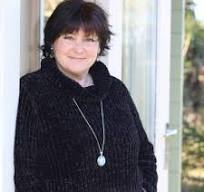
Between husbands, I picked grapes and lived in my car in France.
Why do you write?
I have no choice. It’s been a compulsion since I was seven.
Where did you get the inspiration for your current book?
In researching my own ancestors, I stumbled across an amazing legend about some very brave women in Devon about 1000 years ago whose village was invaded by Danish marauders. The Vikings killed all the men but the women got their revenge in a very canny way.
What do you enjoy the most about your genre?
I love history. There’s a comfort in knowing how things will work out and I always hope we can learn lessons from looking at our forebears and not repeat all the mistakes!
How would you describe your writing process?
I had a breakthrough moment about ten years ago. I was sitting in my plotting shed, trying to squeeze out some words when I realised this was entirely the wrong approach. Instead I inhabited each of my characters, as an actor would, except no one knew the next lines he or she would say. I got into that protagonist’s head and lived through them. Writing was easy after that because they knew exactly what to do.
What do you think authors have to gain from participating in social media?
It’s a modern phenomenon and a privilege that authors can now interact with their readers and learn what they liked or disliked about their work. I have met some wonderful people this way.
What advice would you have for other writers?
Follow your passion and write as much as you can. Do research and social media only when the words won’t flow.
How do you select your books’ titles and covers?
Due to my love of plants, my first few books all had botanical names that integrated perfectly with each story. For instance, Speedwell, a common but beautiful blue-flowered ground ‘weed’ gave my book its ideal title as Book Three of The Katherine Wheel Series, as it is set in the roaring twenties and the world of motor racing. Daffodils, Book One of the epic saga, is set in WW1 whose poignant symbol is usually a red poppy, and it is a play on that as it is a springtime flower signalling hope. It also stands for narcissism, as demonstrated by Lionel White! There is another, very personal, reason which is I was nursing my dying mother when I wrote it. She was born (and died) around the first day of Spring in March and it’s a salute to her brave spirit. Peace Lily was obvious for the aftermath of WW1. Willow forms the background to the riverside setting of that short story whereas Woodbine and Ivy is the name of a folk song my husband sings. A lot of people smoked Woodbine cigarettes in WW2 and Ivy, with its clinging, destructive vines, was perfect for the concluding story. In the Spirit Level Series, I chose an image of a beautiful mullioned window on an old stone house for The Rose Trail with a red rose growing outside it. The story is set in the seventeenth century during the English Civil War and the ghost who won’t stop haunting Meadowsweet Manor is called Rose. She’s a passionate woman so the rose had to be red! Triskelion is where I deviated from plant names but no other title would do for a tale of a long-dead Druid priestess and her timeless message to a rock star and, through his music, to the rest of the world. The Twisted Vine speaks for itself as it is set in the glorious vineyards of France and is a convoluted mystery tale. I picked all the beautiful photographs for the covers but I am indebted to the amazing Jane Dixon-Smith of JD-Designs for putting them together so cleverly.
What’s your next step?
I’ve just finished writing my first contemporary novel. It has a historic twist (I couldn’t resist) but involves three women who are stuck in relationships that bind them. By coming together, they each break free.
What book do you wish you had written?
Any of the classics.
How do you react to seeing a new review for your book?
With butterflies in my stomach!
FIND ALEX’S AWARD-WINNING BOOK, DAFFODILS
FIND ALL HER AVAILABLE BOOKS ON AMAZON
Mar 6, 2024 | Editors' Blog, Interviews
Today, we’re talking with Robert J. Emery, about his new book MEGASTAR!.
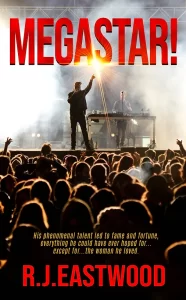 Tell us something unexpected about yourself!
Tell us something unexpected about yourself!
I spent 4 decades in motion picture and television production as a producer, writer & director. After retiring, I began writing books, both fiction and nonfiction. I am about to publish my 9th book – my 3rd novel.
Why do you write?
I have written all my career, both screenplays and TV documentaries. It was a natural transition for me to begin writing books.
Where did you get the inspiration for your current book?
I wanted to write about a man’s life from birth to his death. It took a while to decide on the story I finally went with in MEGASTAR.
What do you enjoy the most about your genre?
MEGASTAR is a departure for me in that I had never written a love story before. My first novel was sci-fi, and my second was a suspense thriller. I honestly enjoyed writing a love story for a change.
How would you describe your writing process?
I begin by deciding what the story will be, the primary characters, and how I will end it. Beyond that, I do not outline, I fill it in as I go. I like surprising myself.
What do you think authors have to gain from participating in social media?
I am heavily involved in social media when it comes to marketing my books and have found it to be a primary way of getting the word out.
What advice would you have for other writers?
Always write what you want, not what is trending. If you are not passionate about a story, don’t write it.
How do you select your books’ titles and covers?
A book title should always say something about the story. As for covers, I work with a cover designer, but I always have in mind what I would like to see. Again, it should say something about what the book is about.
What’s your next step?
Good question. I have not yet decided on a couple of ideas I’m developing.
What book do you wish you had written?
Moby Dick.
How do you react to seeing a new review for your book?
I have been very fortunate to receive positive reviews for my books. I have yet to get a negative review, so each one I get is a joy.
CHECK OUT ROBERT J. EMERY’S WEBSITE
FIND MEGASTAR! ON AMAZON




 In Book 3, Crime, Commitment & Consequences
In Book 3, Crime, Commitment & Consequences Tell us something unexpected about yourself!
Tell us something unexpected about yourself! How do you select your books’ titles and covers?
How do you select your books’ titles and covers?


 Tell us something unexpected about yourself!
Tell us something unexpected about yourself!

